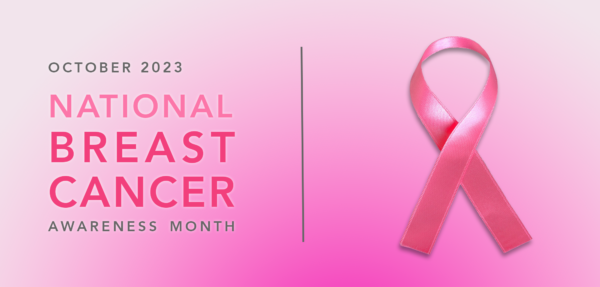
October 2023 has been officially designated as National Breast Cancer Awareness Month by President Joe Biden, reaffirming the commitment to raise awareness about breast cancer and the importance of early detection and prevention. This serves as a reminder that breast cancer remains a significant health concern affecting millions of lives, including Women Veterans.
Approximately one in eight women in the United States will face this disease during their lifetime. This makes it highly likely that everyone will know someone whose life has been touched by breast cancer. After skin cancer, breast cancer is the most common type among American women, though it is important to note that men can also be affected, too, though less frequently.
Regarding Women Veterans, research conducted at the Walter Reed Army Medical Center found that they had a 40 percent higher likelihood of developing breast cancer in comparison to their civilian counterparts. Over 700 Women Veterans are diagnosed with breast cancer each year.
In general, breast cancer predominantly affects women over 50, with only about 10% of all new breast cancer cases in the U.S. found in women under 45. However, Women Veterans who may have been exposed to toxins during their military service, could be at an even greater risk for the disease. Veterans exposed to burn pits and other toxins now have expanded eligibility for breast cancer screenings and mammograms, regardless of age, family history, or enrollment in VA health care.
The VA follows The American Cancer Society’s guidelines that women with average risk consider mammograms starting at age 40, and the frequency should be based on their age and health status. Mammograms may cause mild discomfort but are essential for early detection.
Women should report any lumps, changes in breast size or shape, nipple discharge, skin irregularities, or breast pain to their healthcare provider. Early detection and timely treatment are vital in reducing breast cancer-related deaths. Advancements in early detection and treatment have led to improved survival rates. Regular screening tests remain the most dependable method to detect breast cancer in its early stages.
Veterans are encouraged to take an active role in mitigating their breast cancer risk through a thorough understanding of their individual factors. While annual mammograms are effective in reducing mortality, women with additional risk elements, such as genetic predisposition, family history, prior radiation exposure, dense breast tissue, and socioeconomic disparities, face a higher risk of developing the disease.
The VA’s resources include a range of services, including breast ultrasounds, MRIs, biopsies, surgeries, genetic counseling, and cancer diagnosis and treatment. Mammogram services are offered at over 65 VA facilities, with additional screening available at community facilities for women receiving care at sites without mammography services.
For more information and resources, Veterans can contact the Women Veterans Call Center, which provides information about services and benefits earned through military service, including state-of-the-art breast cancer care. The Women Veterans Call Center can be reached at 1-855-VA-WOMEN (1-855-829-6636) for information on services and resources.
As the population of Women Veterans continues to grow, Breast Cancer Awareness Month serves as a reminder to prioritize their health and well-being, encouraging them to take proactive steps towards early detection, prevention, and support.












